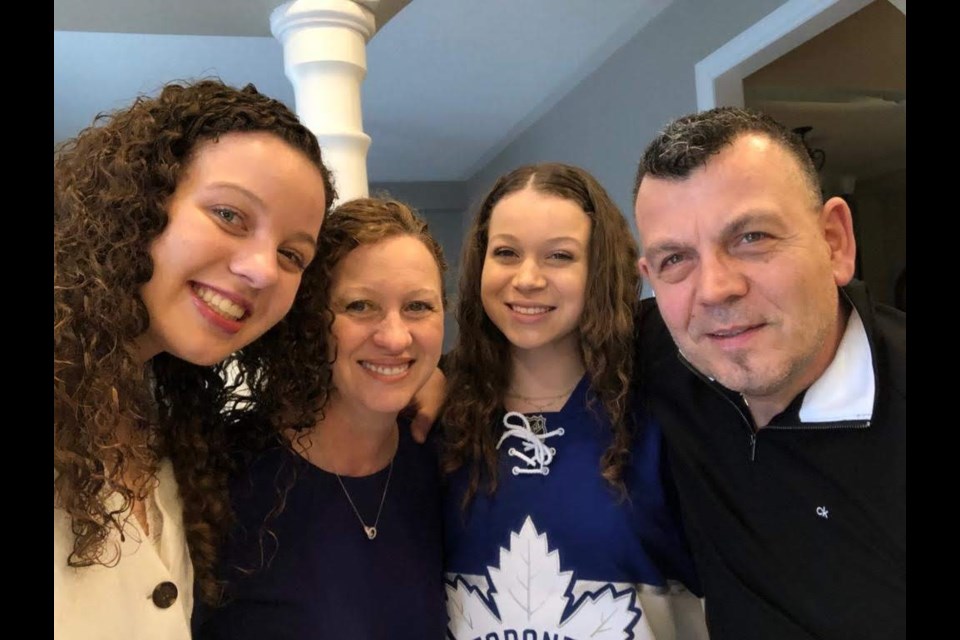Every single morning in Whistler, thousands of people head out the door in search of adventure. They climb mountains, conquer fears, and take big risks en route to new personal milestones.
The vast, overwhelming majority will return to their loved ones at the end of the day, god willing.
But not all of them. Not every day.
When the unimaginable happens, the general public gets a headline, maybe some contextual details if they’re lucky.
Friends and acquaintances feel the loss closer. They grieve, organize tributes and fundraisers, build monuments.
But for the immediate family members, the emptiness goes far deeper. The loss is forever, and the grief can’t truly be captured in a newspaper article.
For that reason, though he lives in Toronto, Arben Kodra will forever be tied to Whistler.
“This is never going to go away. And our life, our family history in Canada, even if we are the distance of 4,300 kilometres, that cannot ever disappear, can never be cut down,” Kodra said on the phone from Toronto, on Family Day, 2023.
“So that connection is going to be forever. It’s part of our daughter’s life there. It’s part of her last breathing there, and it’s never going to disappear.”
Arben’s daughter Gloria was skiing Whistler Blackcomb for the first time on Feb. 25, 2022, when she collided with a tree in the resort’s Symphony Bowl area. She was later pronounced dead at the Whistler Health Care Centre.
“She was a beautiful, bright child; a young girl that finished Queen’s University last year with a 95-per-cent [average] and double degree in engineering and business,” Arben told Pique last year, adding that Gloria “was and she remains perfect in all aspects.”
She served as a teacher’s assistant in her third and fourth years at Queen’s; made the Dean’s List; was awarded the University Medal in Civil Engineering for Excellence in Industry Design; was a Royal Conservatory Musician piano player.
She was also “a great activist for women’s rights,” and advocated for the “blind interview” in the workplace, “which means that you don’t judge someone for the way you look, but for the skills that you bring in a workplace,” Arben said.
Gloria was one of at least four people to pass away after incidents at Whistler Blackcomb last year (that we know of—the mountain does not announce fatal incidents publicly unless media inquires). Several more died in backcountry incidents near and far in 2022.
Each with their own story, like Gloria’s; their own grieving family left behind.
Almost exactly one year to the day since she died, Arben and his family still have questions, but a visit to Whistler in August, arranged by the Whistler Blackcomb leadership, has helped bring some semblance of peace to the family.
“The Whistler leadership team was amazing. [WB chief operating officer] Geoff [Buchheister] was a man that stood by his words,” Arben said.
On Aug. 8, Buchheister and other members of WB’s leadership team met the family in their hotel room, and flew them up the mountain to visit the site of Gloria’s accident.
The tree in question now bears a crucifix and a simple sign bearing Gloria’s initials: GYK.
“It brought us some peace,” Arben said of the visit.
“I personally imagine always those trees, on top, with birds and eagles—I can say [that is] where my daughter’s spirit is flying around. But it’s very tough. It doesn’t go away.”
As a journalist, you talk to a lot of people—sometimes every week, or multiple times a day, even; some calls last just minutes, others stretch over hours.
Conversing with multiple people, from all walks of life, every day for years on end can get muddlesome—that is, it’s easy for conversations and even people to blend together.
Over time, you can forget about phone calls, or sources, or even stories you’ve written. (And, to be frank, sometimes that’s for the better.)
And then there are the calls, and the stories, that will stick with you for as long as you live.
Though we’ve never met, some part of me will always be tied to the Kodra family in Toronto, thanks to a random phone call I got while sitting at my desk one day in March. It’s funny, in a morbid sort of way, how tragedy bonds us, cements us together, regardless of all our worldly differences.
Since Gloria’s death, Buchheister and Arben have stayed in contact, too.
“He called me, a few days before Christmas time, and we really appreciate that … He said, ‘When you have a shitty day, don’t hesitate to call me. We can talk,’” Arben said.
“And he said, ‘It doesn’t get easier.’ He said, ‘It is like a backpack, a heavy backpack that is always with you. But you just adjust how to carry that, every day.’”
We all have our own backpacks we carry. The weight doesn’t lessen; we just get stronger with time, more adjusted to the load.
Now, when I hear of tragedies in our community and beyond, I’ll think first of the Kodra family, and of Gloria, who was so much more than a newspaper headline.
She was promise and potential, personified—an impossibly heavy reminder that tragedy can strike when we least expect it; to hold our people close and tell them we love them every chance we get.
“As parents, we’ll never stop talking about our child—how beautiful, how bright, how amazing she was,” Arben said.
“Always with a smile. Always so candid, always so friendly, and willing to help others.”






